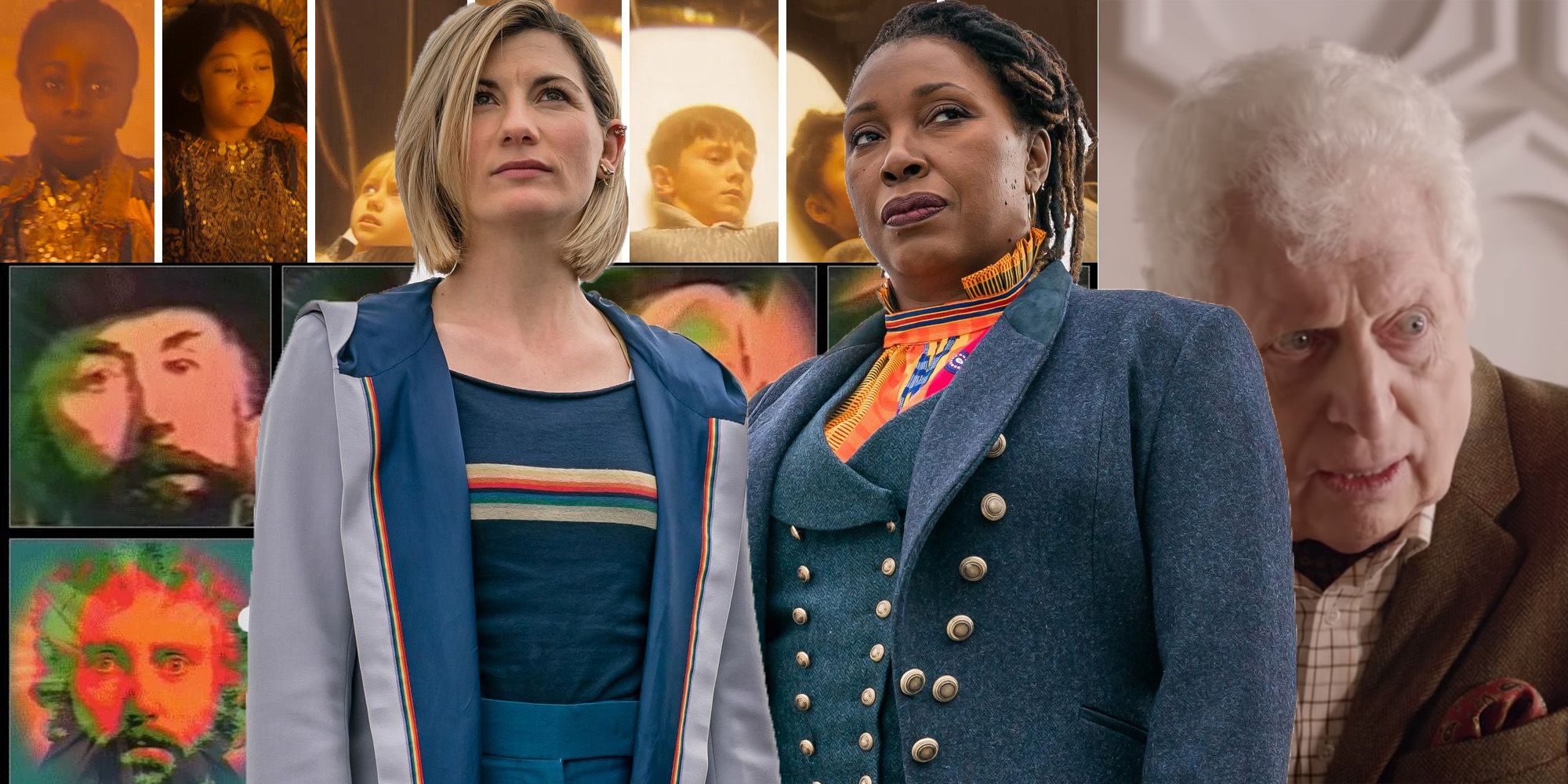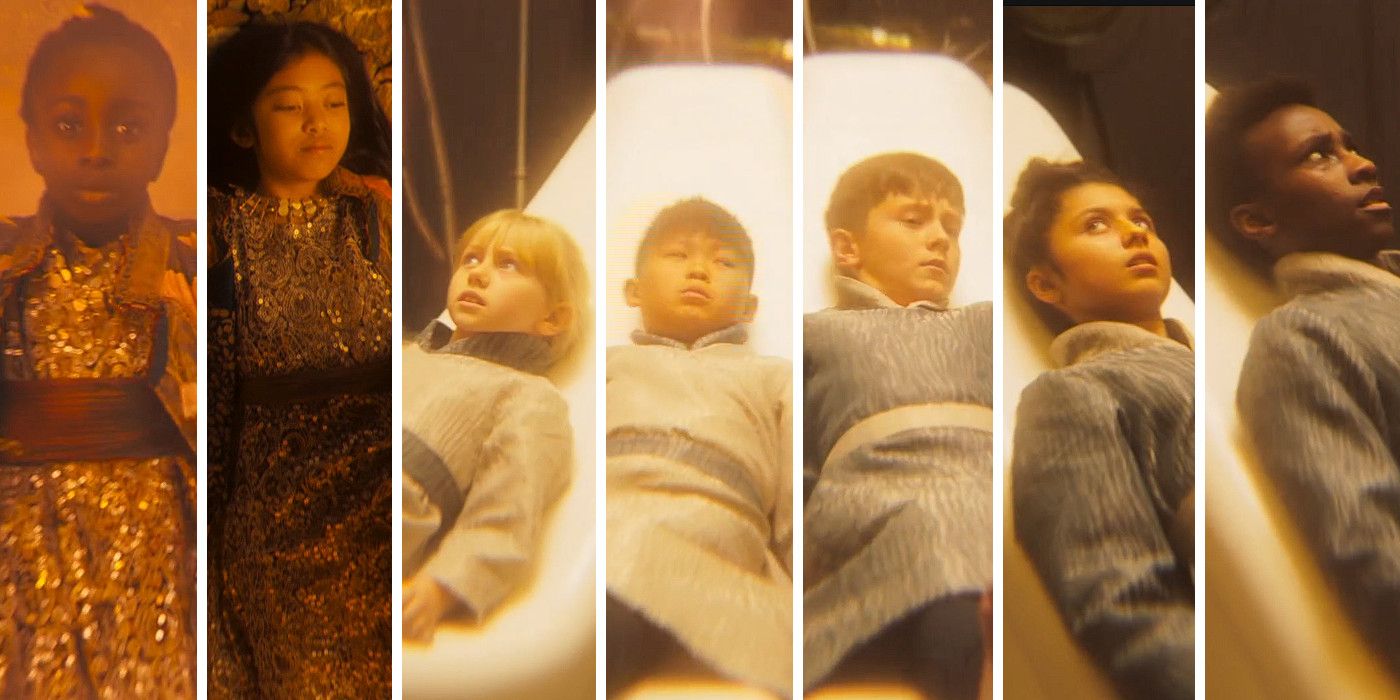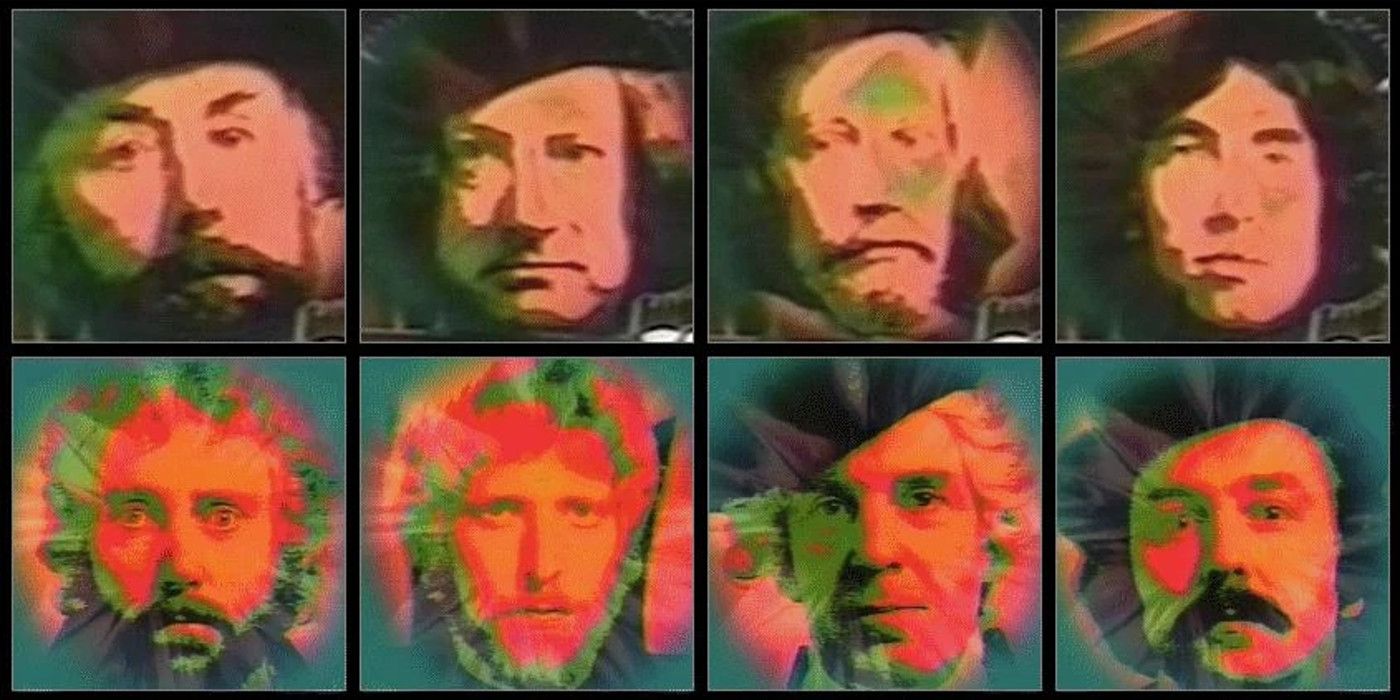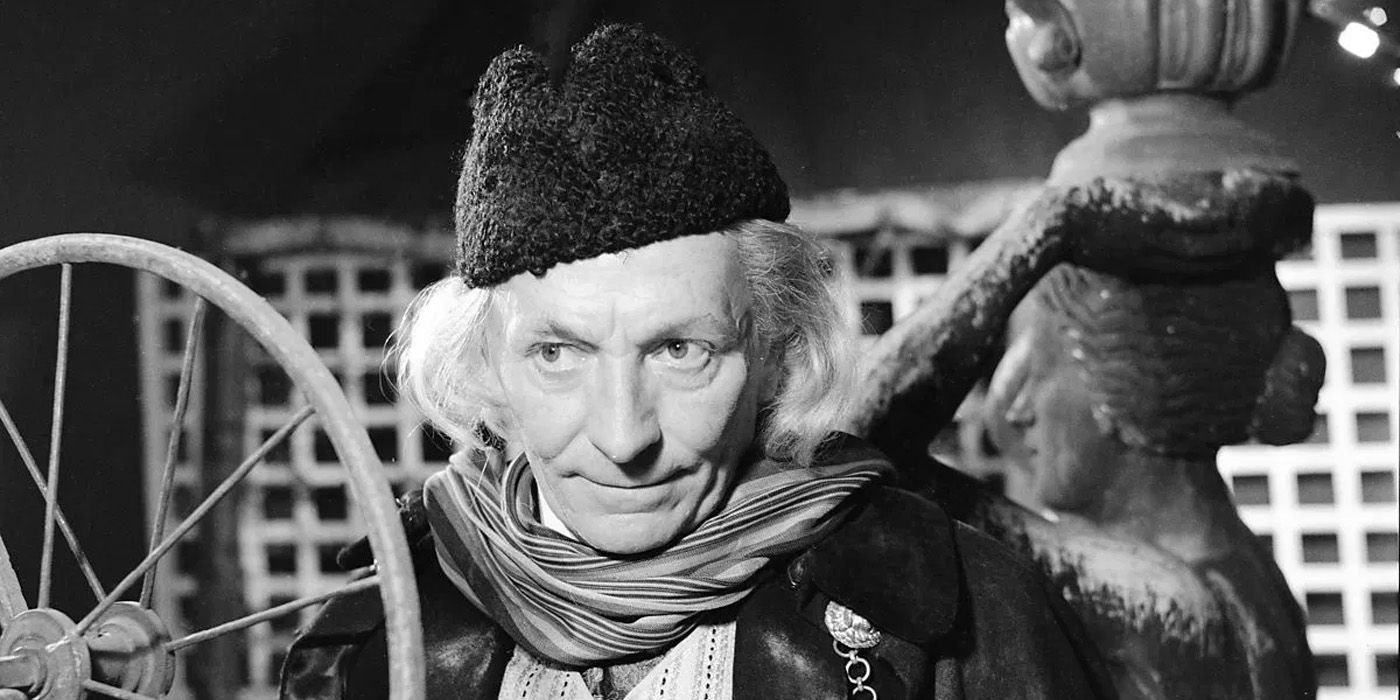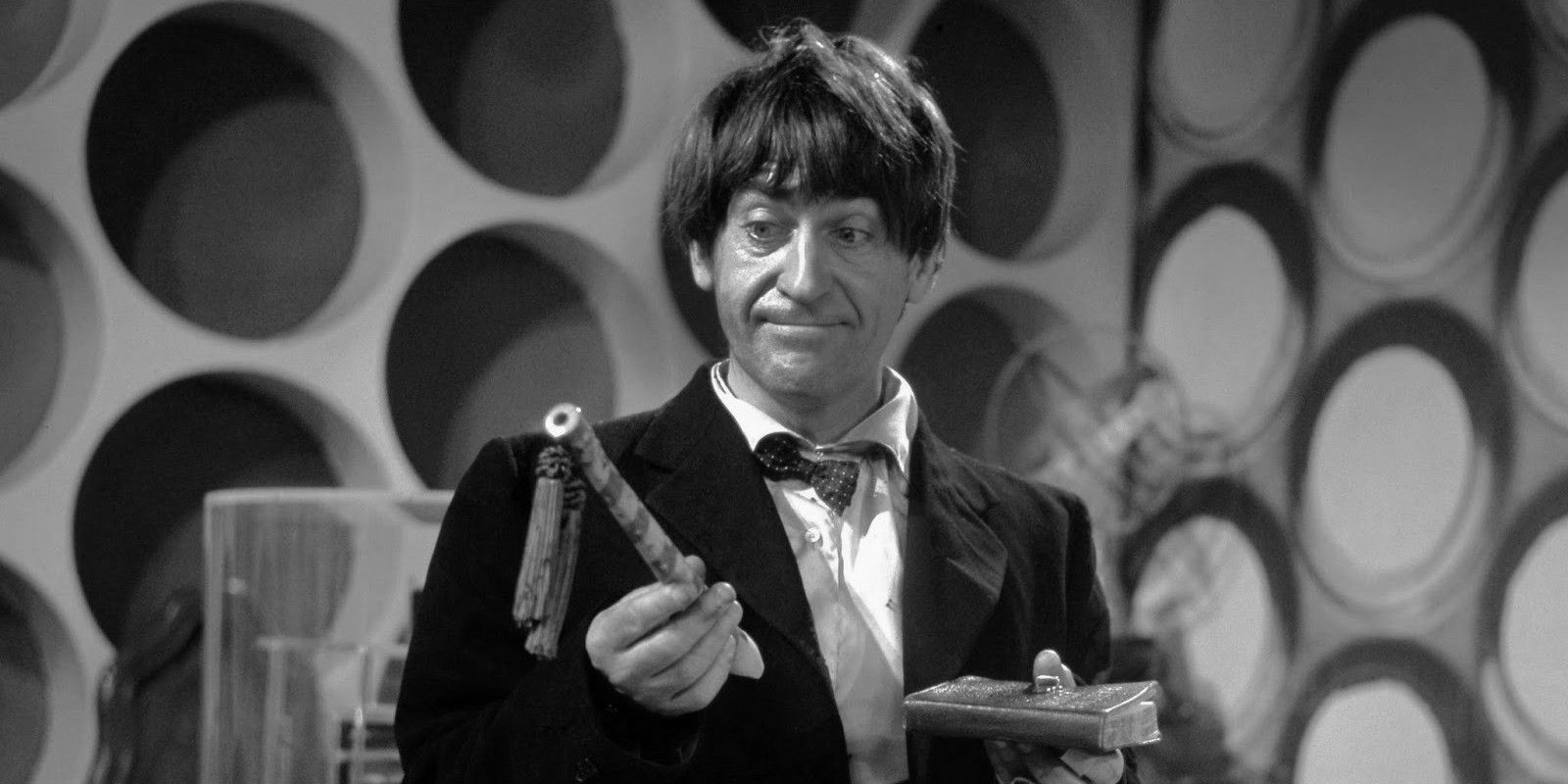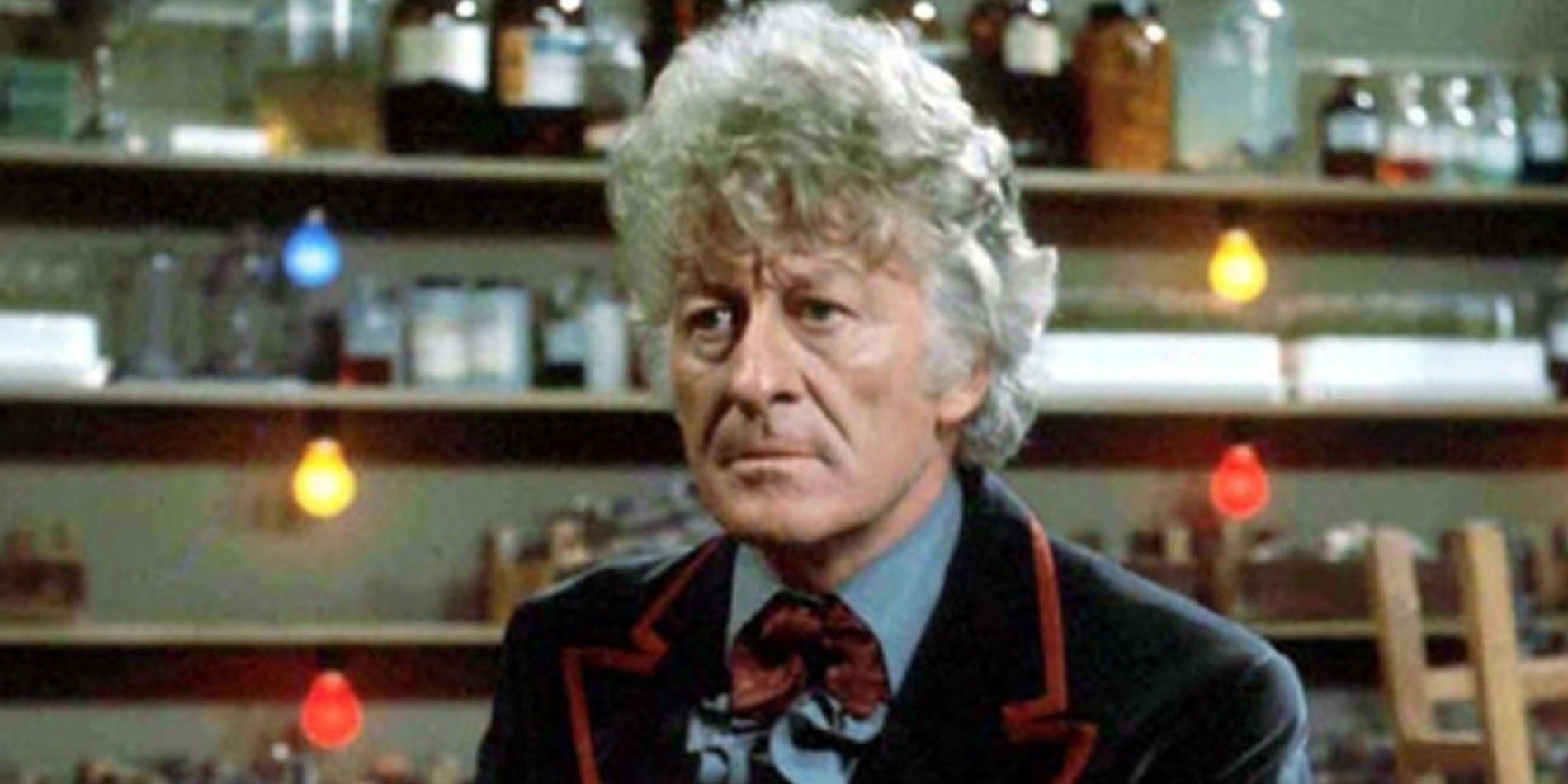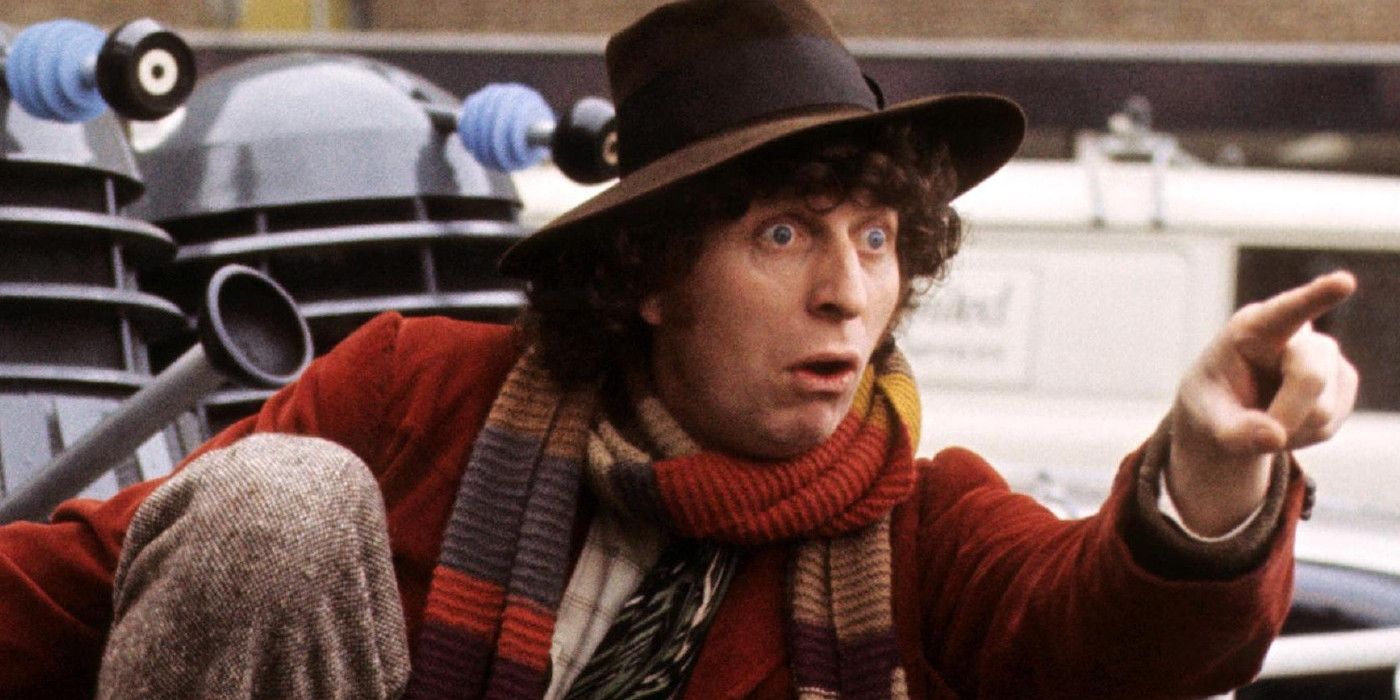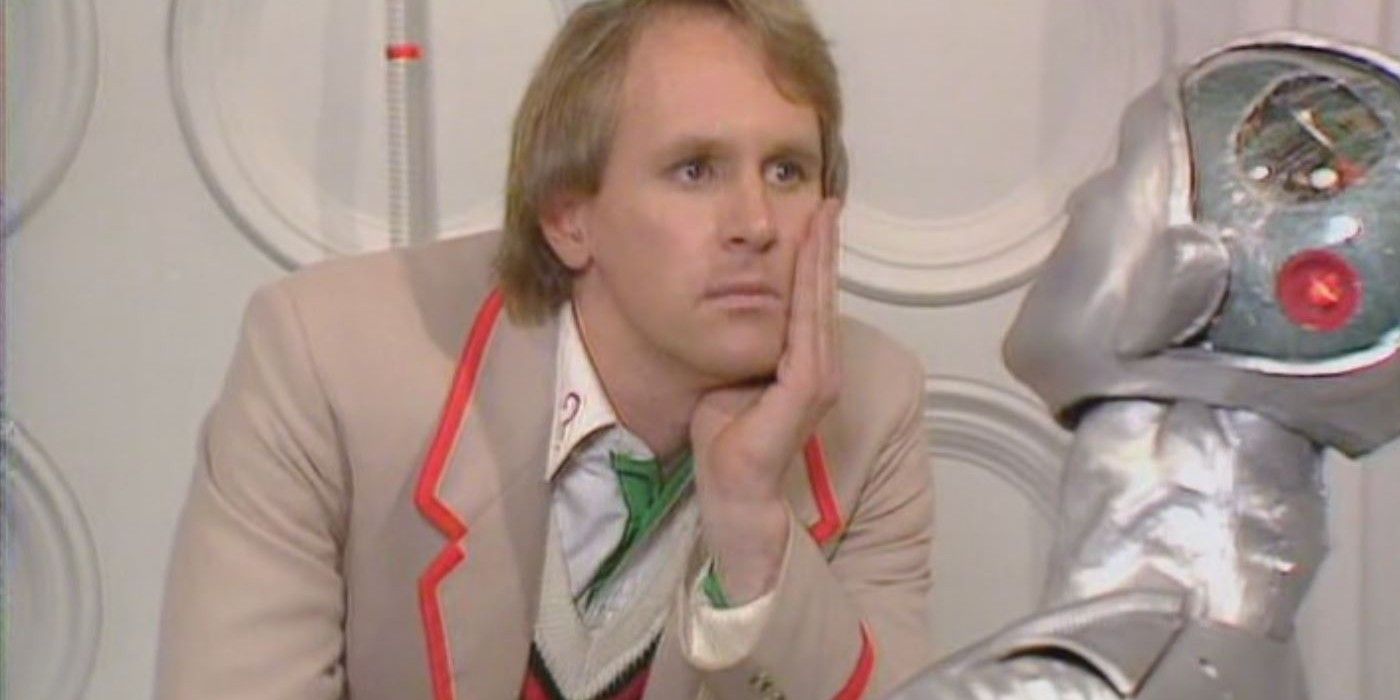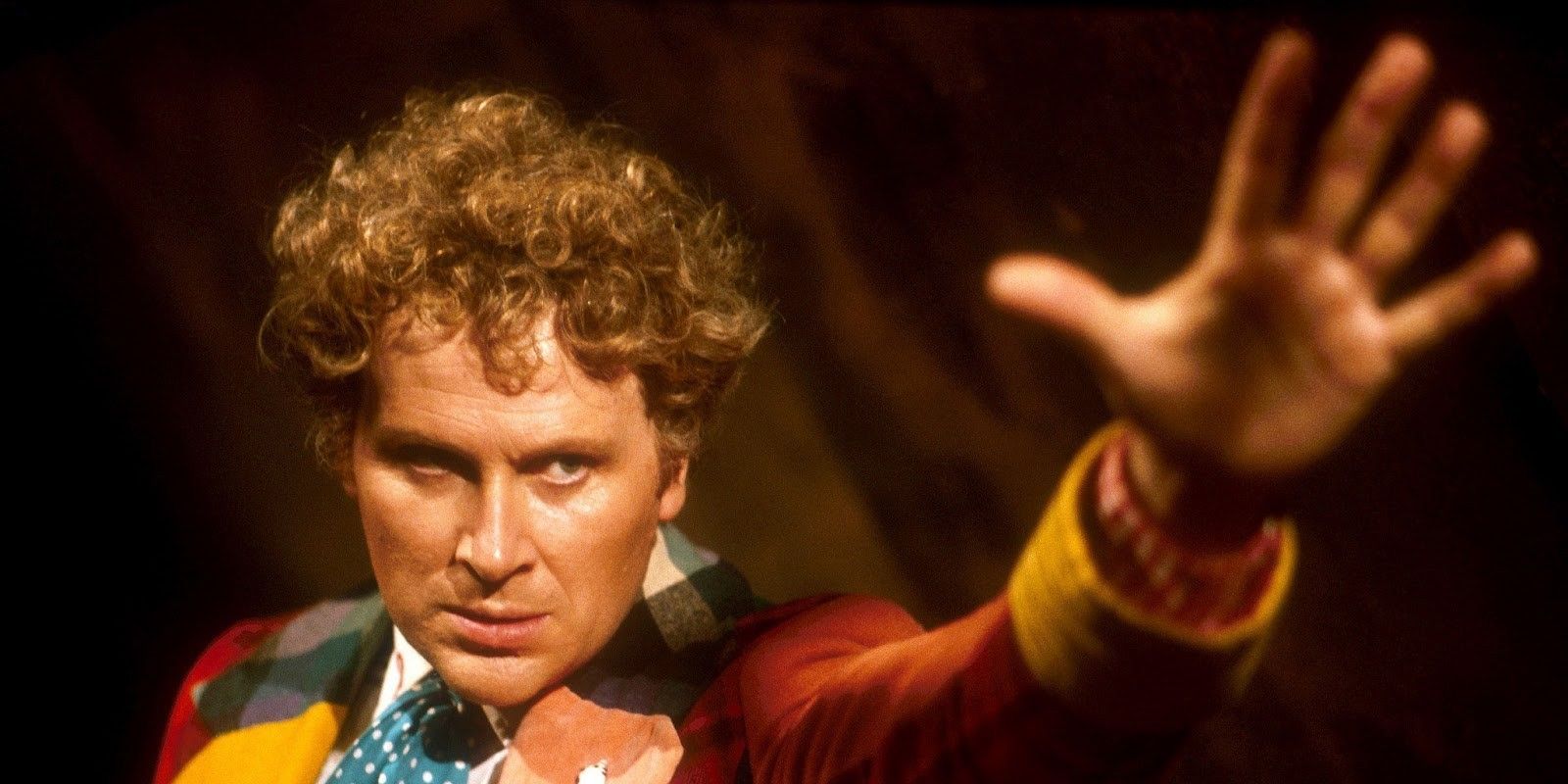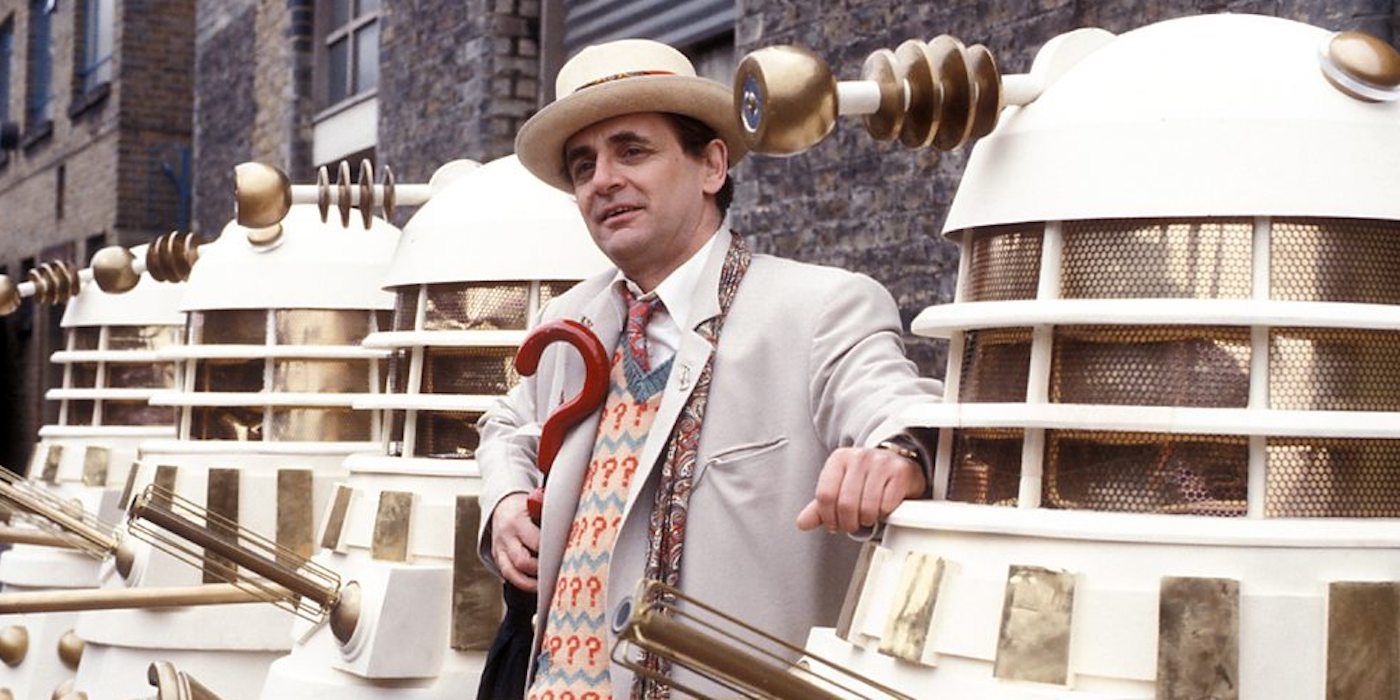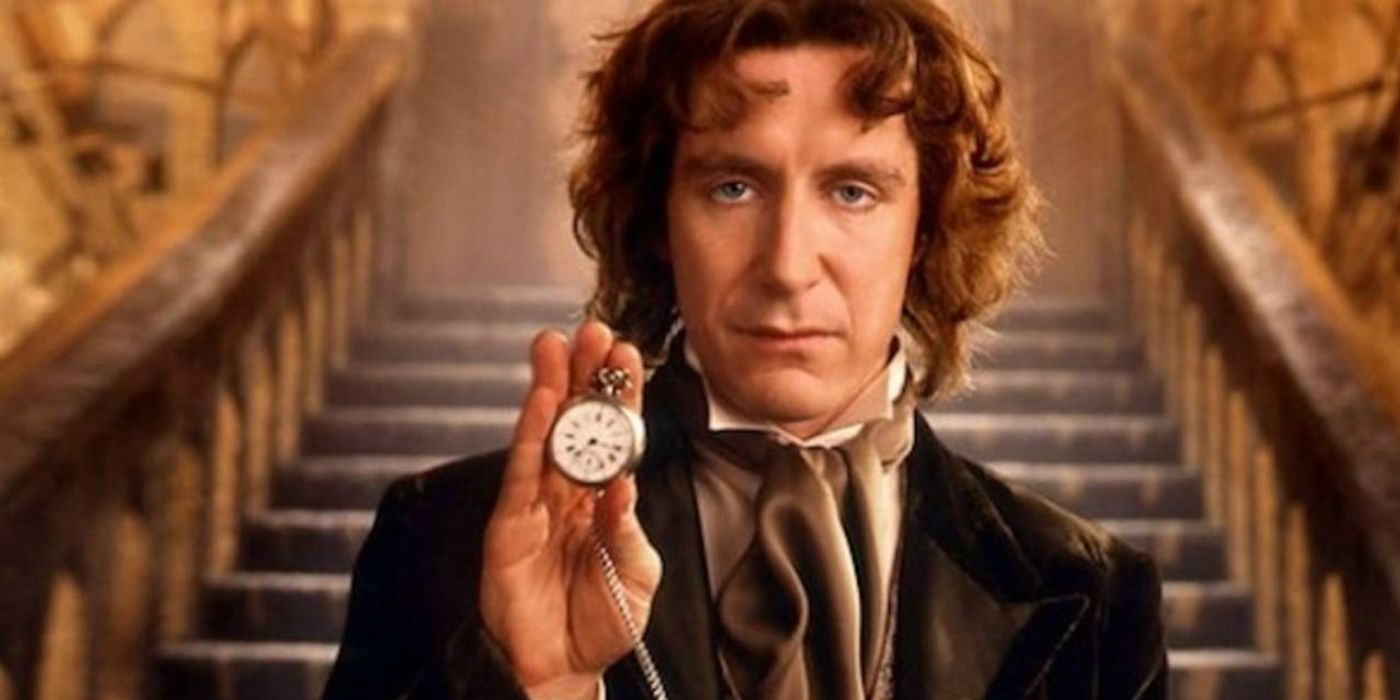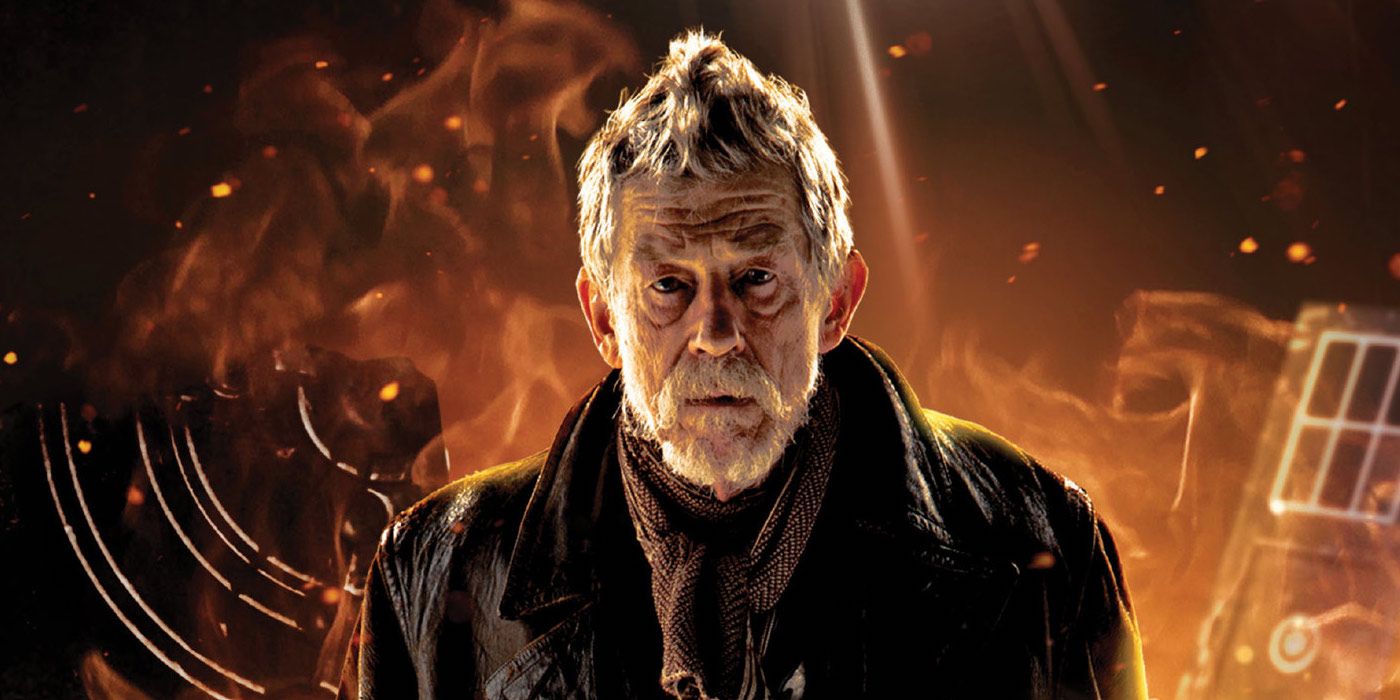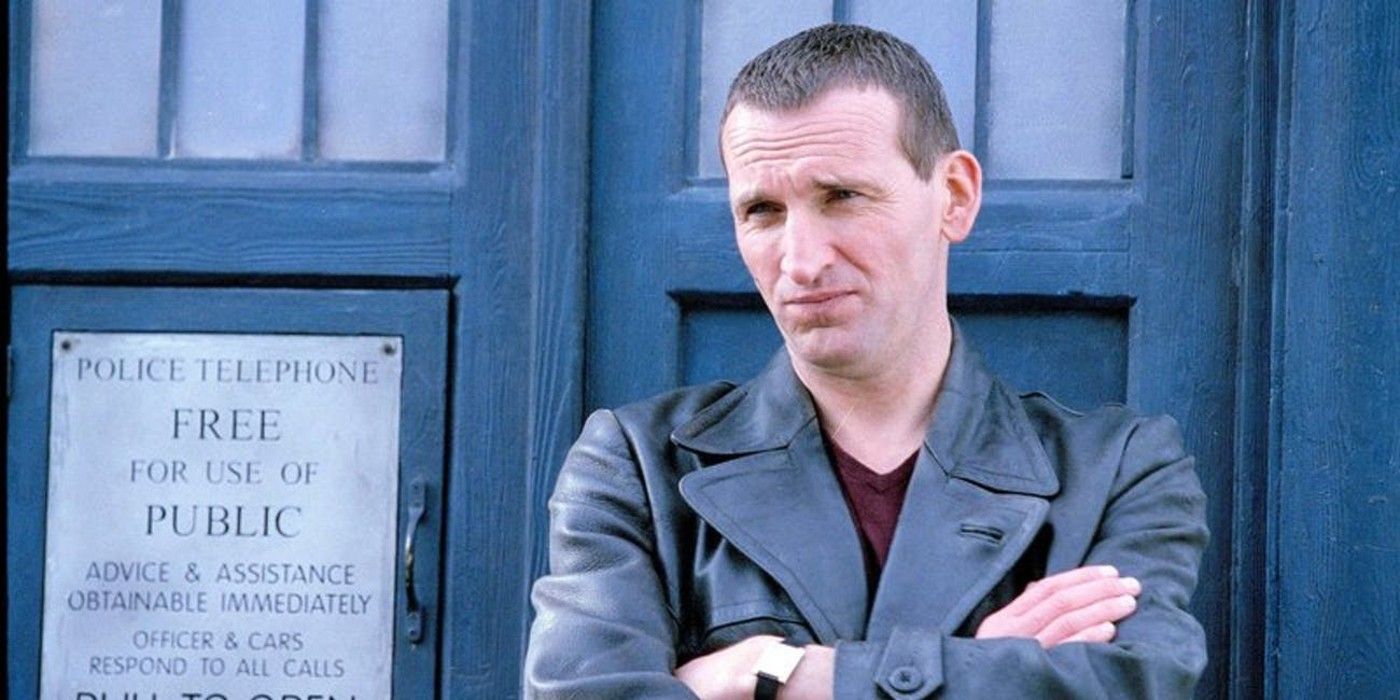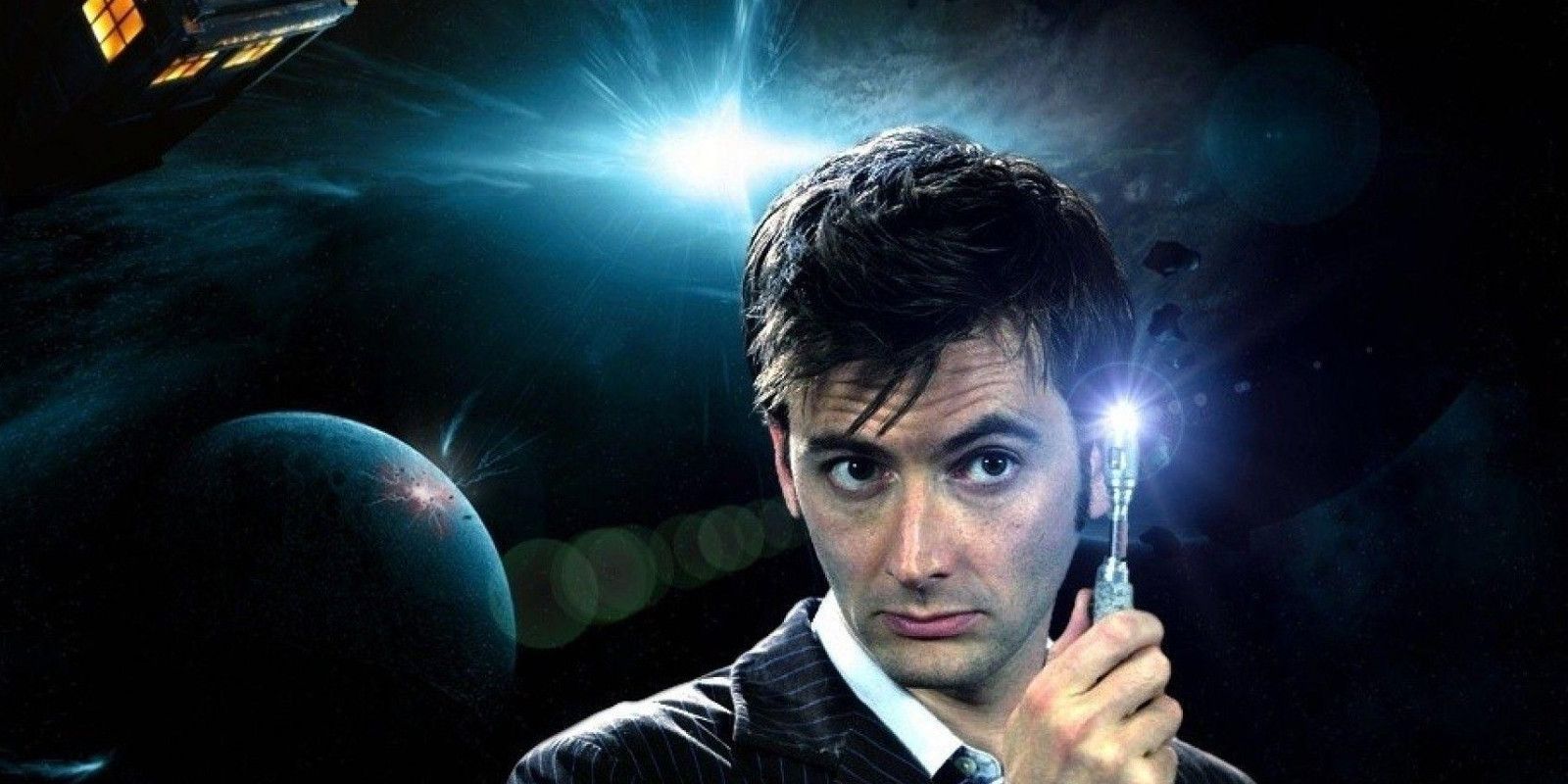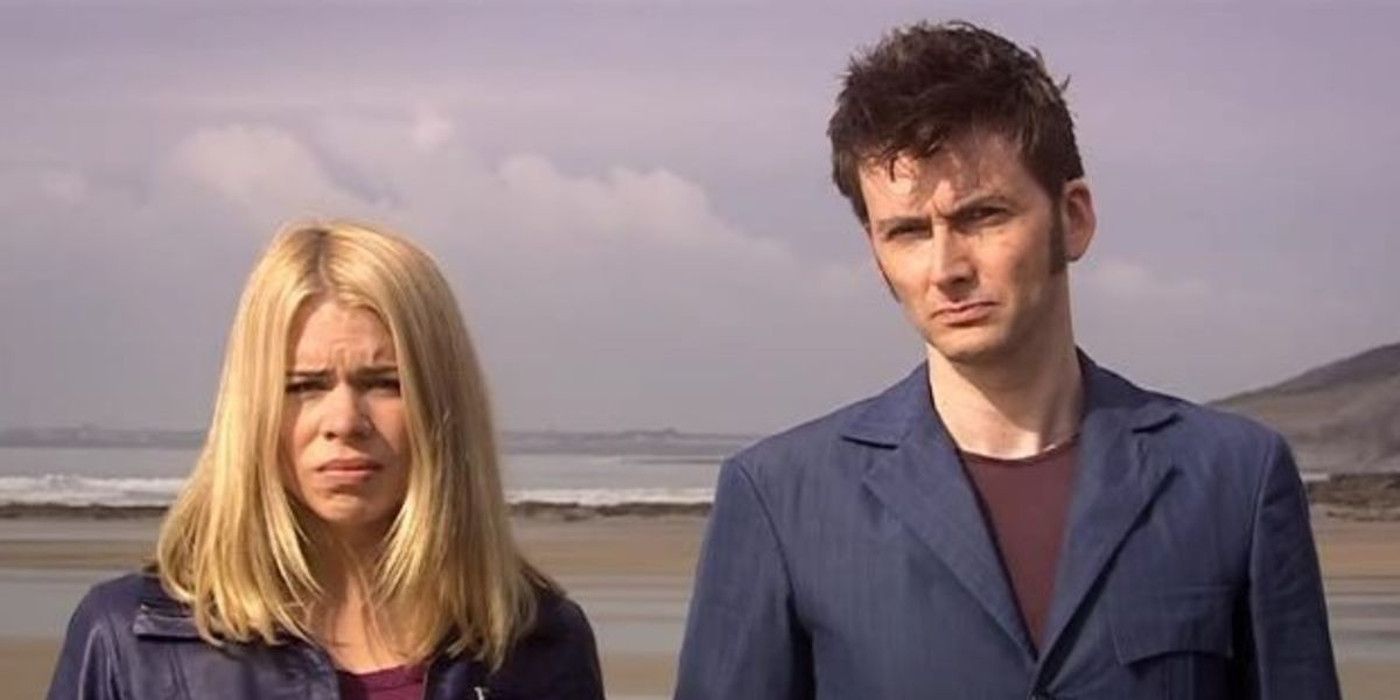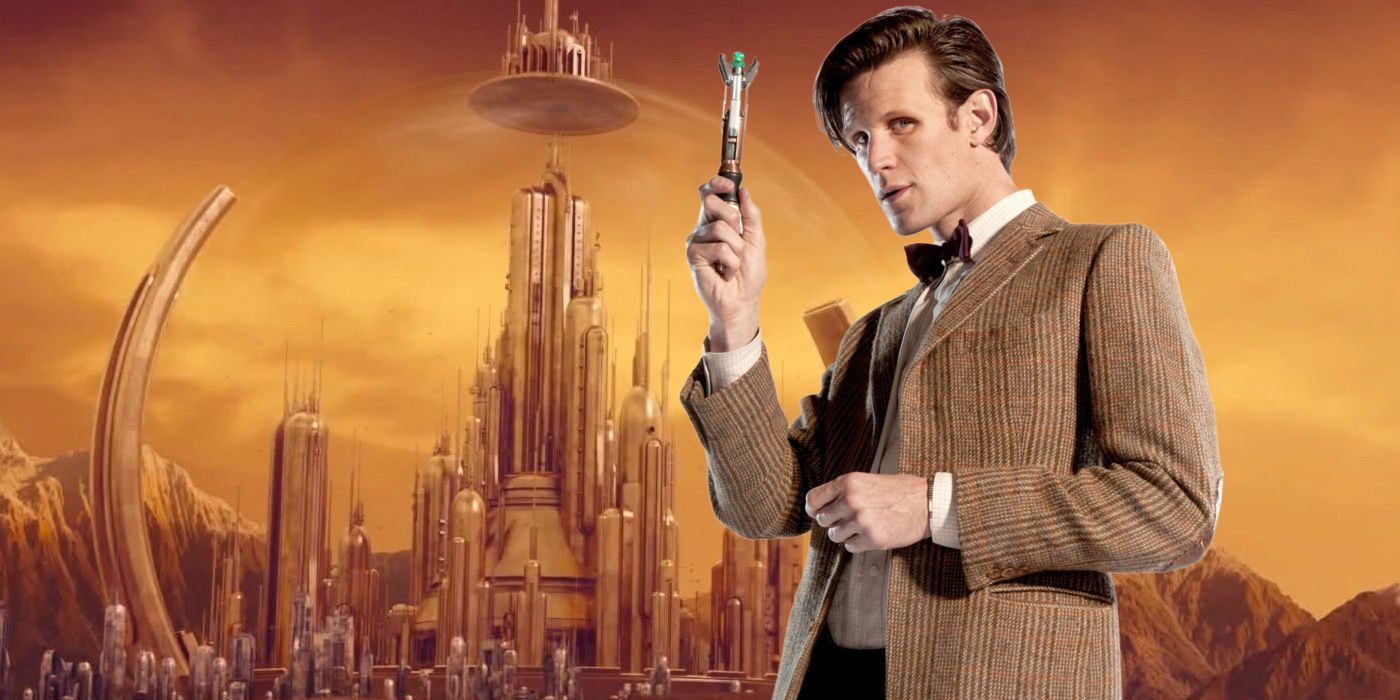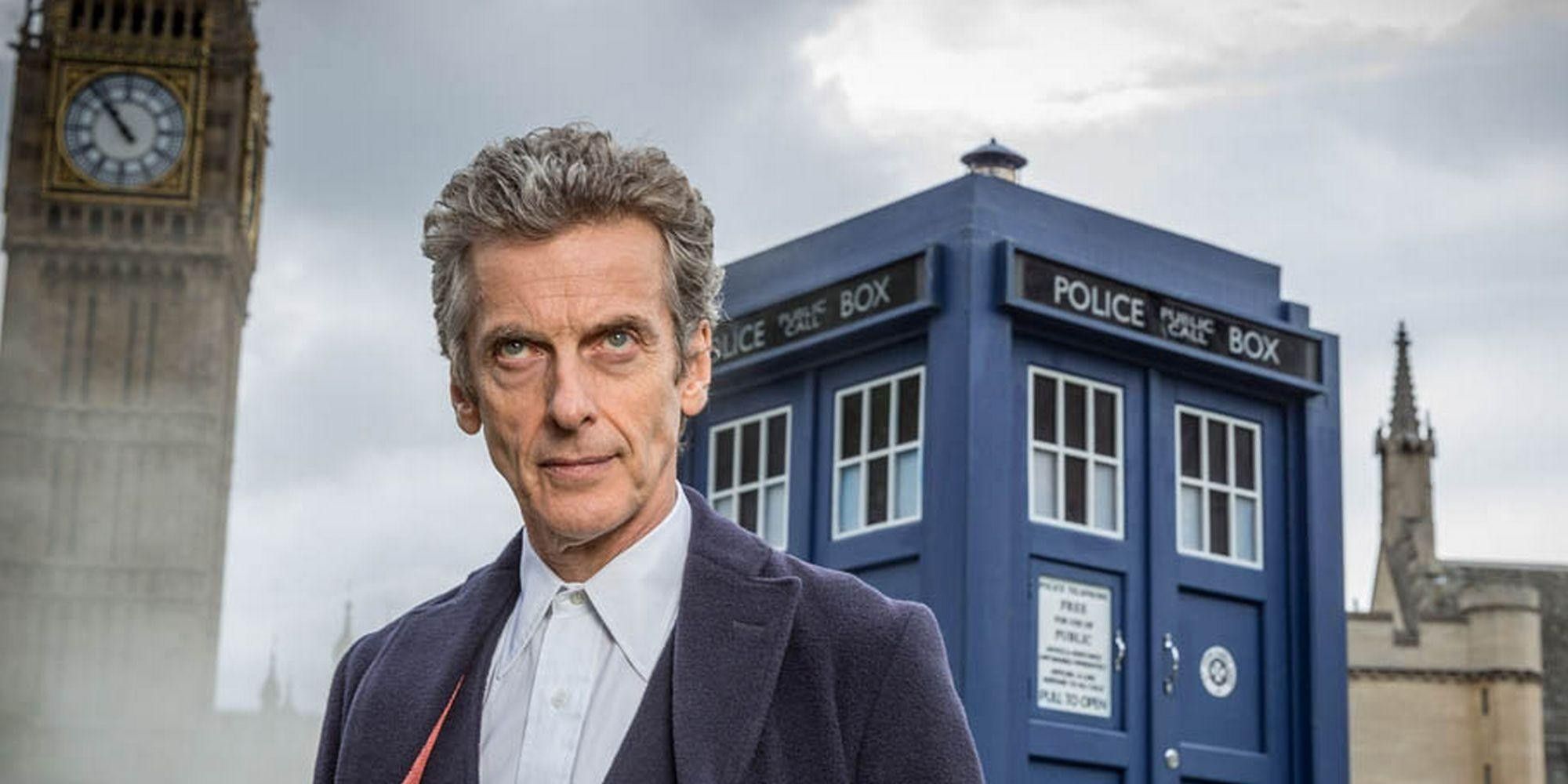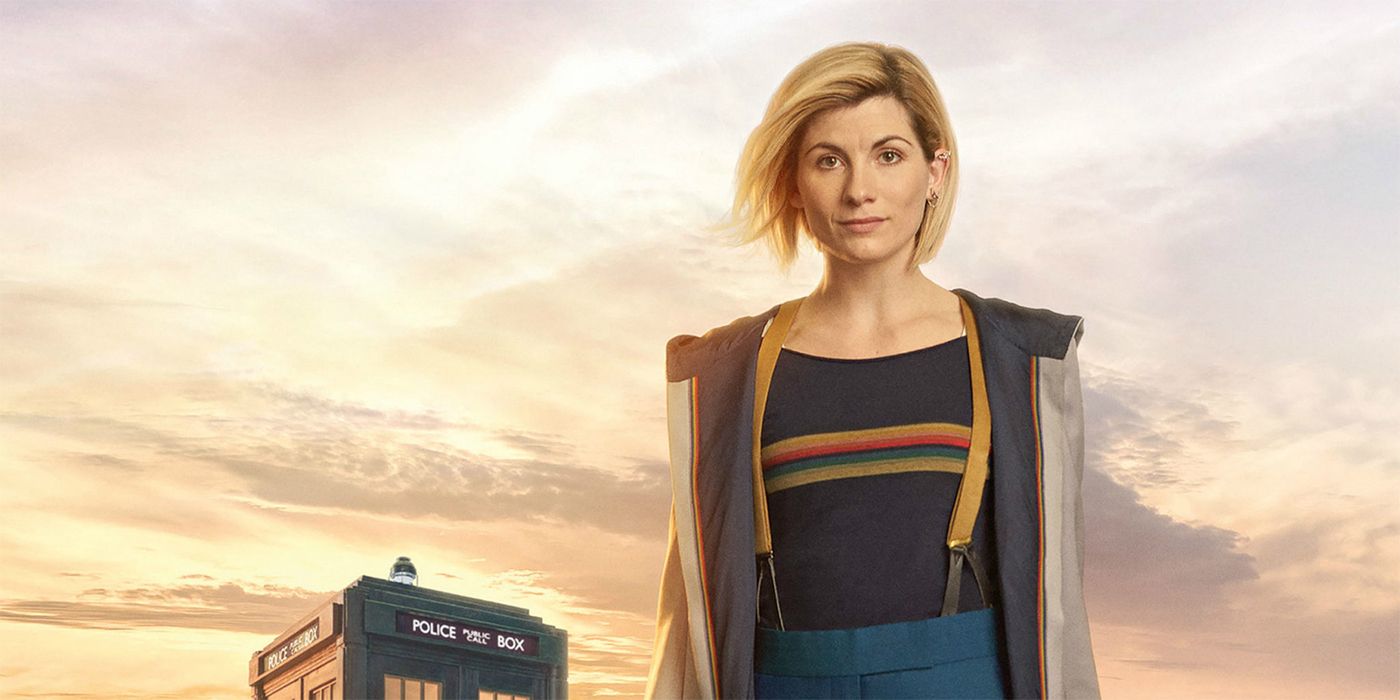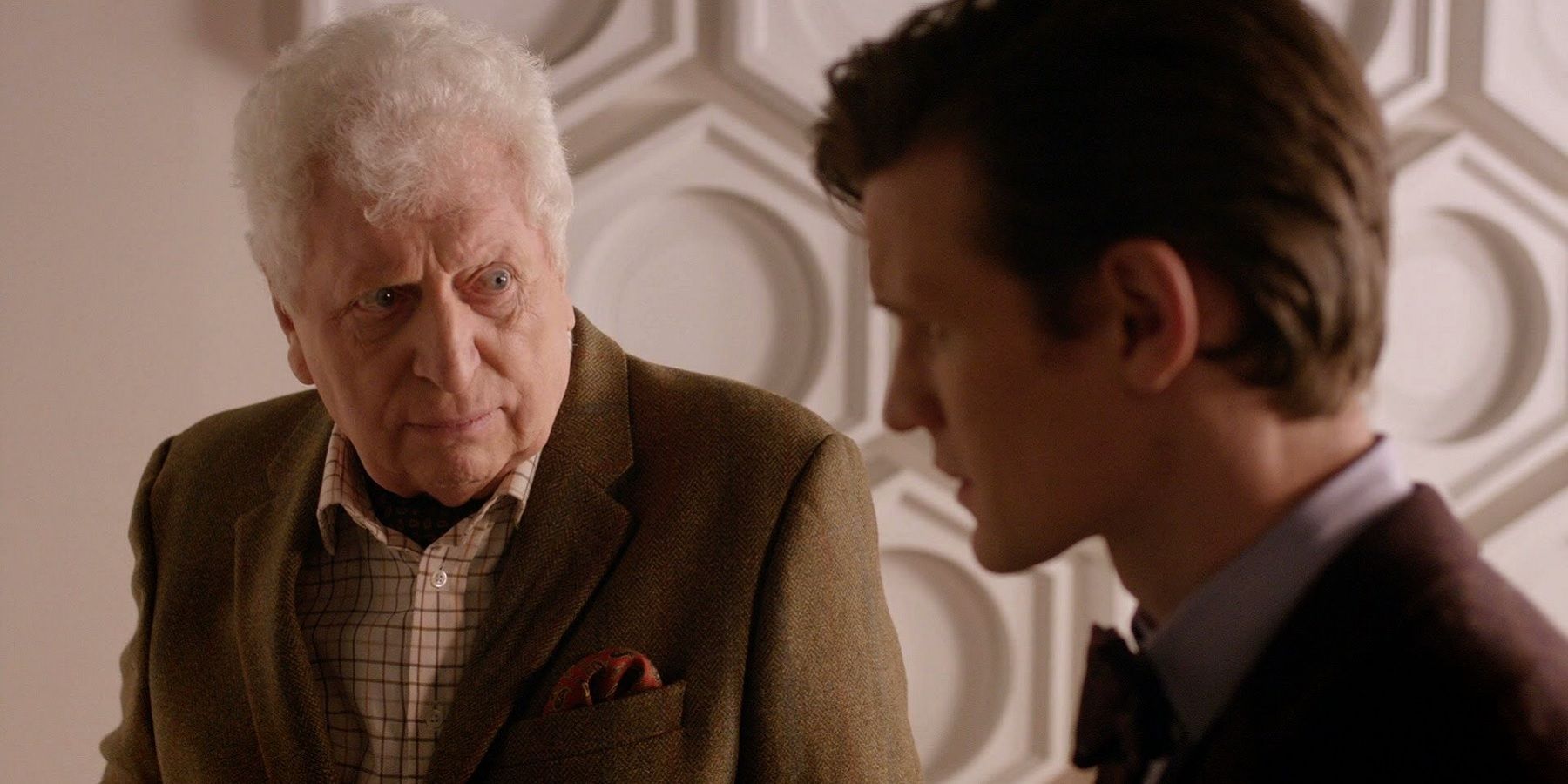Warning: The following contains SPOILERS for Doctor Who "The Timeless Children."
The long life of The Doctor just became longer, thanks to the season 12 finale of Doctor Who, "The Timeless Children," and a retcon that will forever change the history of the long-running science-fiction series. This is due to a being known as the Timeless Child and the truth behind their identity.
The season 12 opener, "Spyfall," introduced the mystery of the Timeless Child, which inspired the Doctor's nemesis, The Master, to commit genocide and kill off the rest of their species, the Time Lords. The Master had discovered a horrible secret, which he claimed proved that the Time Lords had lied to them about who they were all their lives. The season finale, "The Timeless Children," revealed that secret: that the longevity of the Time Lords and their ability to regenerate their bodies and become new people after suffering fatal damage was encoded into their DNA after one of their earliest explorers isolated the ability from an abandoned child of an undetermined species. This child became known as the Timeless Child, and the Master claimed that The Doctor had been the Timeless Child before having their memories wiped by the Time Lords.
The practical upshot of this revelation was that The Doctor is incalculably older than previously imagined. Moreover, unlike the Time Lords (who could only regenerate their bodies 12 times), the Doctor can regenerate into a seemingly infinite number of incarnations. This idea had the interesting side-effect of fixing a continuity error from the classic Doctor Who episode "The Brain of Morbius," which suggested that The Doctor had regenerated several times before the events of the television series started. Here is a rundown of all 32 of The Doctor's lives that can be accounted for based on the Doctor Who television series.
The Timeless Children
The Master related the story of the Timeless Child and how they were discovered and adopted by the ancient Gallifreyian explorer Tecteun over the course of "The Timeless Children." A brilliant geneticist in addition to being an astronaut, Tecteun isolated the factor that gave their adoptive child the power of regeneration and encoded it into the DNA of the Time Lords. The Timeless Child goes through seven incarnations before The Master finishes the story.
The Brain of Morbius Doctors
Written by legendary Doctor Who script editor Robert Holmes during the 4th Doctor era, "The Brain of Morbius" saw The Doctor battle the titular renegade Time Lord, who had been sentenced to disintegration for his crimes against the universe, only to have his brain saved by one of his followers. Intending to have his brain transplanted into The Doctor's head, Morbius engaged The Doctor in a psychic battle. As the two struggled against each other, Morbius tried to rip The Doctor's memories apart, conjuring up images of his past selves - including the faces of eight men who had never been seen on the show before. Producer Philip Hinchcliffe later confirmed to the Radio Times that the intention was to suggest The Doctor lived several lives before the show started.
Ruth
Introduced in the season 12 episode "Fugitive of the Judoon," Ruth was a seemingly normal British tour guide who became the target of the Judoon's rhino-like mercenary police force for some unknown reason. As The 13th Doctor tried to help Ruth unravel that mystery, it became apparent that Ruth was a Time Lord who had used a device called a Chameleon Arch to become human and gone into hiding. However, the twist of the episode was that Ruth was apparently an incarnation of The Doctor, and she claimed to have no memory of having ever looked like the 13th Doctor in her past. While it's possible that Ruth is mistaken about both points (being The Doctor or existing before the 13th Doctor), the revelation of the Timeless Child makes it entirely possible Ruth is a Doctor from the time before The Doctor's televised adventures began.
The 1st Doctor
Played by William Hartnell, the first incarnation of the Time Lord who would later become known as The Doctor was an elderly man with a granddaughter named Susan as the original Doctor Who series opened. This Doctor was a decidedly different figure than the Doctors who followed him, being a grumpy old man who looked down on humanity and only tolerated the primitive 20th century to humor his granddaughter's love of Earth culture. Though he was largely content to observe and experiment (as befit his nature as a scientist), even this Doctor could not help but play the hero when faced with evil aliens like the Daleks and the Cybermen.
The 2nd Doctor
The concept of regeneration began with the 2nd Doctor, who was introduced after William Hartnell was forced to retire from the show because of health reasons. Patrick Troughton started the tradition of each successive Doctor having a different personality than his predecessor, allowing each actor the freedom to play The Doctor as they saw fit, so long as they stayed true to the character's ethos of never being cowardly or cruel. This allowed Troughton to turn the Doctor into a more comedic figure - "a cosmic hobo" who was a wacky uncle to his young companions rather than a grumpy grandfather. Sadly, for all Troughton did to develop The Doctor, most of his tenure on the show is lost to history.
The 3rd Doctor
The first Doctor to have his adventures broadcast in color, Jon Pertwee was perhaps the most dashing of Doctors. Yet while he was famed for his frilly shirts and velvet jackets, the 3rd Doctor was no dainty dandy. Indeed, he needed little excuse to showcase his mastery of Venusian martial arts (both aikido and karate) and was the only Doctor to directly weaponize the Sonic Screwdriver. Exiled to Earth for most of his life, the 3rd Doctor was also the first version of The Doctor to cross swords with The Master.
The 4th Doctor
Played by the irrepressible Tom Baker, the 4th Doctor is perhaps the most famous incarnation of the character among mainstream audiences. This is partly due to Tom Baker having the longest tenure of any actor to play The Doctor at seven seasons, and partly due to his being the first Doctor to have his adventures aired in the United States. A distinctive figure with his trademark scarf and ever-present bag of Jelly Babies, the 4th Doctor is still seen as the definitive Doctor by many Whovians.
The 5th Doctor
The youngest actor to play The Doctor at the time, Peter Davison had big shoes to fill following Tom Baker's record-setting tenure. Perhaps it was for this reason that the 5th Doctor was written as a quieter, less confident, and more introspective figure - less alien than his predecessor and more of a protective big brother to his companions. He was notable as the first Doctor to lose a long-term companion and the first Doctor to regenerate while sacrificing himself to save a companion's life.
The 6th Doctor
"Loud" would be the best word to summarize the 6th Doctor played by Colin Baker. It's a close call as to which was more offensive: his acidic personality or his wardrobe, which did not so much clash as it waged all-out thermonuclear war. The original plan of the showrunner at that time was for the 6th Doctor to be softened as time went on, presenting a more ethically ambiguous Doctor who would play at immorality only to turn the tables on his enemies. Sadly, Baker wouldn't get the chance to redeem his Doctor until several decades later through a series of audio stories for Big Finish Productions. The 6th Doctor is still one of the most unpopular Doctors to date as a result.
The 7th Doctor
Originally introduced as a clownish figure in the same vein as the 2nd Doctor, Sylvester McCoy's 7th Doctor changed dramatically in his final two seasons. While this Doctor often played the fool, his comic mannerisms hid the calculating mind of a chessmaster. His defining moment came when he tricked Davros, the mad scientist who created the Daleks, into blowing up the Dalek homeworld of Skaro.
The 8th Doctor
The 8th Doctor occupies a unique position in the succession of Doctors, counted as neither part of the Classic Who era nor the New Who era. Appearing in a single 1996 made-for-TV film that was meant to act as a backdoor pilot for an American-produced revival of Doctor Who, the 8th Doctor failed to attract an audience, and the series would remain dormant for the better part of the next decade. Despite this, actor Paul McGann went on to play the 8th Doctor in a number of audio plays and finally filmed a well-received regeneration scene in "The Night of the Doctor," as part of Doctor Who's 50th Anniversary.
Introduced in the closing moments of "The Name of the Doctor," this incarnation (played by John Hurt) denied himself the right to use the name of the Doctor, having made the choice to become a warrior rather than a healer. Used to making hard choices, the War Doctor nearly destroyed both the Daleks and the Time Lords using a reality-altering doomsday device in order to stop the Time War. In the end, however, he found another way, and his future incarnations reassured him that he was worthy of the name of The Doctor because he had been The Doctor "on the day it wasn't possible to get it right."
The 9th Doctor
The first Doctor to star in Doctor Who when the series was revived in 2005, the 9th Doctor offered a decidedly different take on the classic character. Christopher Eccleston may have only played the role for a season, but he still defined The Doctor for a generation of new Whovians. The bright question mark-adorned clothing favored by earlier Doctors was replaced with a cool leather jacket and muted colors. Yet despite the new wardrobe and a moody, cynical personality fueled by being the apparent sole survivor of the Time War, this Doctor still chose to be a coward rather than a killer, when given the chance to destroy the Daleks at the cost of sacrificing the human race.
The 10th Doctor
As a boy, David Tennant decided to become an actor because he dreamed of playing The Doctor someday. Not only did Tennant's dream come true, but he became the actor most synonymous with the role of The Doctor since Tom Baker. A dashing figure in his trademark pinstripe suits and Converse sneakers, the 10th Doctor is perhaps the most overtly heroic Doctor in history, charging into danger while shouting "Allons-y!"
The Meta-Crisis Doctor
While not technically a Time Lord, the being known as the Meta-Crisis Doctor still counts as one of The Doctor's regenerations. Born when the Tenth Doctor tried to fight his regeneration and channeled the energy into his own severed hand, the Meta-Crisis Doctor looked like the Tenth Doctor and had his memories up to the point when his hand had been cut off during a sword fight. Despite this, the Meta-Crisis Doctor was an ordinary human. He later retired to a parallel universe that had no Doctor and entered into a romantic relationship with The Doctor's former companion, Rose Tyler.
The 11th Doctor
"Good men don't need rules. Today is not the day to find out why I have so many." Perhaps no statement summed up the mercurial nature of the 11th Doctor so well as that. Played by Matt Smith, the 11th Doctor was a study in contrasts. He possessed a young man's body and an old man's soul, yet was as capable of acting extremely childish as he was in showcasing great wisdom. Aloof and off-putting, he was less inclined to social behavior than his predecessor, yet was fiercely loyal to what few friends he kept.
The 12th Doctor
More than any other incarnation, Peter Capaldi's 12th Doctor seemed obsessed with the idea of identity and understanding who he truly was. Over his long life he reinvented himself as a punk rocker and a nutty professor, yet he most concerned himself with the question of whether or not he was a good man. Though he may have ultimately been, in his own words, "an idiot with a box and a screwdriver," the 12th Doctor did not shirk his duty when the universe demanded he play the role he was best at: the man who stops the monsters.
The 13th Doctor
Played by Jodie Whittaker, the 13th Doctor was the first incarnation of The Doctor in the show's history to be a biological female. Ironically, she was a return to the classical Doctor form in many respects despite this. She favored colorful clothes and long coats like the Doctors of the classic series and was a far more secretive and guarded figure than most of the modern Doctors. Despite this, she still treated her companions like family rather than mere friends, though she didn't trust them with much information about her past or her homeworld.
The Curator
Appearing at the end of the Doctor Who 50th Anniversary special "The Day of the Doctor," the mysterious figure known as the Curator teased the 11th Doctor with the knowledge that his efforts to save Gallifrey were successful. Resembling an older version of the 4th Doctor, the Curator refused to explain his appearance beyond suggesting that someday The Doctor might learn how to bring back some old familiar faces. While he never confirmed that he was a future incarnation of The Doctor, The Curator's final words to the 11th Doctor take on a whole new meaning when one considers the legend of the Timeless Child: "I can only tell you what I would do if I were you. Oh, if I were you. Oh, perhaps I was you, of course. Or perhaps you are me? ...or perhaps it doesn't matter either way. Who knows, eh? Who knows?"

